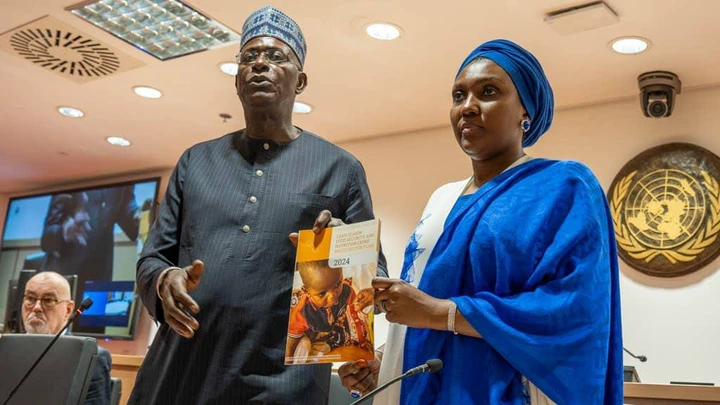$306 million has been launched to address the food security and nutrition crisis expected in Borno, Adamawa, and Yobe (BAY) states in Nigeria during the lean season from May to September, 2024.
The Nigerian government, along with national and international partners, initiated the appeal in Abuja on Tuesday.
The goal is to expedite food assistance, nutrition supplies and services, clean water, healthcare, and protection support for those in severe need. These states have been severely impacted by over a decade of Boko Haram Terrorists conflict.
According to a Government led Cadre Harmonise analysis from March, around 4.8 million people in the BAY states are facing severe food insecurity, the highest levels in seven years.
The most vulnerable include children, pregnant and lactating women, the elderly, and people with disabilities.
The appeal aims to provide immediate relief to 2.8 million people to prevent food insecurity and a nutrition crisis during the lean season.
A statement from the United Nations Office for the Coordination of Humanitarian Affairs (OCHA) emphasized the urgent need for coordinated intervention.
Rising food prices due to conflict, insecurity, and climate change, compounded by the removal of fuel subsidies and the depreciation of the naira, have made staple foods like beans and maize unaffordable, with prices increasing by 300 to 400 percent over the past year.
The crisis includes high malnutrition rates, with about 700,000 children under five projected to be acutely malnourished in the next six months. Of these, 230,000 are at risk of death without timely treatment and nutrition support.
At the plan’s launch, the Director General of the National Emergency Management Agency, Zubaida Umar, highlighted the need for funding and resources to prevent deaths from malnutrition and other health-related issues.
United Nations Resident and Humanitarian Coordinator Mohamed Malick Fall announced the release of $11 million from the Nigeria Humanitarian Fund to kickstart the emergency response. He stressed the need for pooled resources to save lives and alleviate suffering.
UNICEF Nigeria’s Acting Representative, Dr. Rownak Khan, expressed deep concern over the escalating food security and nutrition crisis.
He emphasized the urgency of delivering lifesaving nutrition support, noting a significant rise in severe acute malnutrition cases among children.
Dominique Koffy Kouacou, FAO’s interim representative in Nigeria, called for urgent interventions to support both immediate and long-term needs.
These include emergency agriculture support, such as providing seeds, fertilizer, and technical training, and developing agribusiness to improve food production and nutrition.
David Stevenson, Country Director of the World Food Programme, emphasized the need for peace and production solutions.
He highlighted efforts to provide nutritious foods through cash-based transfers, specialized foods, and local food solutions in the Region.



